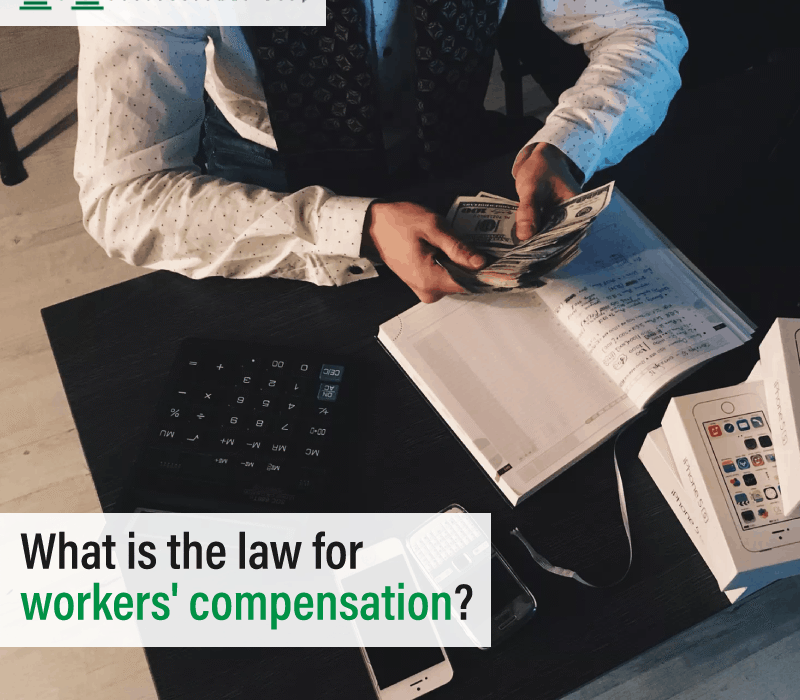What Is The Law For Workers’ Compensation?
Are you injured while performing your workplace activity? Were you hurt in the workplace? Were you subjected to poor workplace conditions? Well, these are just a few of the ways in which you might be incurring workplace injury. If you’re from Canada, you might know that the federal and state government has laws that strictly state that employers are bound to compensate for such injuries with what’s called workers’ compensation.
The workers’ compensation is an excellent way of ensuring workplace safety and compensating workers if they get injured while on work. Being implemented first at 1915, this was a new way in which employees could claim for compensation if they were injured. In Ontario, the Workplace Safety & Insurance Board looks out for cases where employers don’t agree to pay the workers’ compensation.
There are other laws that protect workers’ rights to ask for the workers’ compensation. Let’s go through them in this article. However, before we do we must know what the workers’ compensation is!


What Is Workers’ Compensation?
The workers’ compensation is a form of insurance that provides compensation for lost wages and medical benefits to employees who are injured at workplace. In many cases, vocational retraining and return-to-work program are held. In return, the employer takes away the employee’s right to sue their employers for their tort of negligence.
For this reason, they can’t sue their employers. However, if an employer intentionally inflicted injury to the employee, only then can the employee file a lawsuit against the employer. In such cases, punitive damages, pain and suffering damages, emotional damages and other tort damages are not available to be claimed through the workers’ compensation claim policy.
Workers’ Compensation Laws
Each particular state have enacted their own workers’ compensation laws to replace the traditional personal injury litigation. This was done to eliminate the risks of both the employee and employers. For people who’re not included in the Workers’ Compensation Act, they have to file a lawsuit against their employer if they’re injured at the workplace. They must also prove their employers responsible for their injury. Usually, this was a very long and delayed process, and there was a high chance that the employee loses the case and is set back further.
The workers’ compensation eliminates the possibility of large payouts after lawsuits for the employers. This is also helpful for the employees because it gives a guaranteed income if the employee is injured. It reduces stress on them and their families during times of injury as they can pay for their medical expenses and recover for the loss in income.
Every province provides certain exceptions to the workers’ compensation. In such cases, employers can give proper reasons to bypass the workers’ compensation laws. On the other hand, employees too can file a lawsuit for the damages and sue their employer. Exceptions may also be considered if the worker is subjected to toxic working conditions.
The employer is also lawfully supposed to continue with the employment and you’re protected from termination during the workplace injury. If you’re receiving your workers’ compensation and slowly recovering from the workplace injury, you have no worries of you losing your jobs solely because you’ve injured yourself and applied for the compensation.
When Can A Worker Apply For Workers’ Compensation?
Depending upon the province in which the worker is located, employers are generally required to file work-related injuries to the Workers’ Compensation Board (WCB) within 72 hours. This can include if:
- The worker is absent from regular work
- Is under medication
- Supposed to be at bed rest or at hospital
- Earns less than the regular pay for their regular work
- Required modified work after the accident/injury
Conclusion
Workers’ Compensation Act is the law that protects employees from work related accidents, injuries and illnesses. It’s a helpful law for both the employer and the employees alike. However, one must know the law for workers’ compensation so that they can claim what’s rightful.
Every province has a slightly different workers’ compensation with their own workers’ compensation boards. That’s why the law in each province might be different from the other. Generally, the employer is supposed to report any learning of workplace injury within 72 hours to the local WCB office.
The employee will also continue to receive the workers’ compensation during the time of recovery. However, there might be exceptions where the workers’ compensation doesn’t count. To better understand if you’re eligible for workers’ compensation, it’s highly recommended that you talk to an expert workplace injury lawyer in Ontario beforehand.



